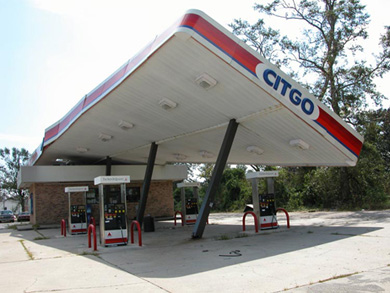PUERTO PIRITU, Venezuela (Reuters) - Venezuela stripped the world's biggest oil companies of operational control over massive Orinoco Belt crude projects on Tuesday, a vital move in President Hugo Chavez's nationalization drive.
The May Day takeover came exactly a year after Bolivian President Evo Morales, a leftist ally of Chavez, startled investors by ordering troops to seize his country's gas fields, accelerating Latin America's struggle to reclaim resources.
"The importance of this is that we are taking back control of the Orinoco Belt which the president rightly calls the world's biggest crude reserve," said Marco Ojeda, an oil union leader before a planned rally to mark the transfer.
The four projects are valued at more than $30 billion and can convert about 600,000 barrels per day (bpd) of heavy, tarry crude into valuable synthetic oil.
U.S. companies ConocoPhillips, Chevron, Exxon Mobil, Britain's BP, Norway's Statoil and France's Total agreed to obey a decree to transfer operational control on Tuesday, although the OPEC nation complained ConocoPhillips was somewhat resistant.
In Puerto Piritu, near the facilities that refine Orinoco crude, workers prepared early on Tuesday to celebrate the takeovers, displaying Venezuelan red, blue and yellow flags and daubing a wall with Chavez's slogan: "Homeland, Socialism or Death."
The anti-American leader was also in a festive mood before a rally marking what he called the end of an era of U.S.-prescribed policies that opened up the largest oil reserves in the hemisphere to foreign investment."Open investment will never return," he said on Monday to thousands of cheering workers dressed in the signature red of his self-styled leftist revolution at a rally for workers rights.
"We are sealing up that open investment era and burying it deep down in the Orinoco oil reserve," he added.
Buoyed by an oil price bonanza in the No. 5 crude exporter to the United States, Chavez is popular among the majority poor for spending freely on schools, clinics and food handouts.
The man who calls Cuban leader Fidel Castro his mentor has vowed to take at least 60 percent of the projects, radicalizing his policies as he rules by decree and politicizes the army, state oil company and judiciary.
In the oil projects, the companies have agreed to hand over operations but are still discussing continued shareholding and compensation in sometimes contentious negotiations before a deadline next month.
Oil Minister Rafael Ramirez has said there may not be compensation in some cases and that Venezuela will only consider agreements on the booked value of the projects rather than their much larger current net worth.Although Venezuela claims output of more than 3 million bpd, analysts reckon it strains to pump 2.6 million bpd. U.S. data peg it as the world's No. 8 exporter.
Industry analysts fear Venezuela's state oil company PDVSA could ultimately run into production and safety problems when it loses the management and technology of the experienced majors.
As he shrinks the private companies' role, Chavez has formed joint ventures with allies such as China, Belarus and Iran involving many state entities that are unfamiliar with developing such crude.
Still, Chavez hailed Tuesday's takeovers as the South American nation reclaiming its sovereignty."The wheel has turned full circle," he said. "Long live PDVSA, long live the workers of PDVSA."
By Brian Ellsworth***** This headline doesn't fit its piece.
Had Chavez seized the oil companies, as Castro did with major corporations in Cuba following their disagreement over government controls, executives would have little to do discussing compensation and benefits. The news here is not only that Chavez has indeed seized a controlling interest in the companies, but that this was done with substantial compromise.
Also, the figures on Venezuela's output and current sales do not properly convey its importance as an oil vendor. Many estimates place its reserves as the greatest in the world. Moreover, should the US decide to maintain reasonably good relations, Venezuelan reserves may be more reliable than Middle Eastern oil, being located far closer to the US and in a region that we have currently destabilized to a lesser degree.
The author doesn't state which experts worry how Venezuela will get the crude out of the ground, but one imagines they can pay for the service should they need to -- that is, unless the price of crude takes a very deep plunge.
And if it comes to further negotiations during Chavez' tenure, the oil companies might not get the sweetheart deal they've had in the past.

